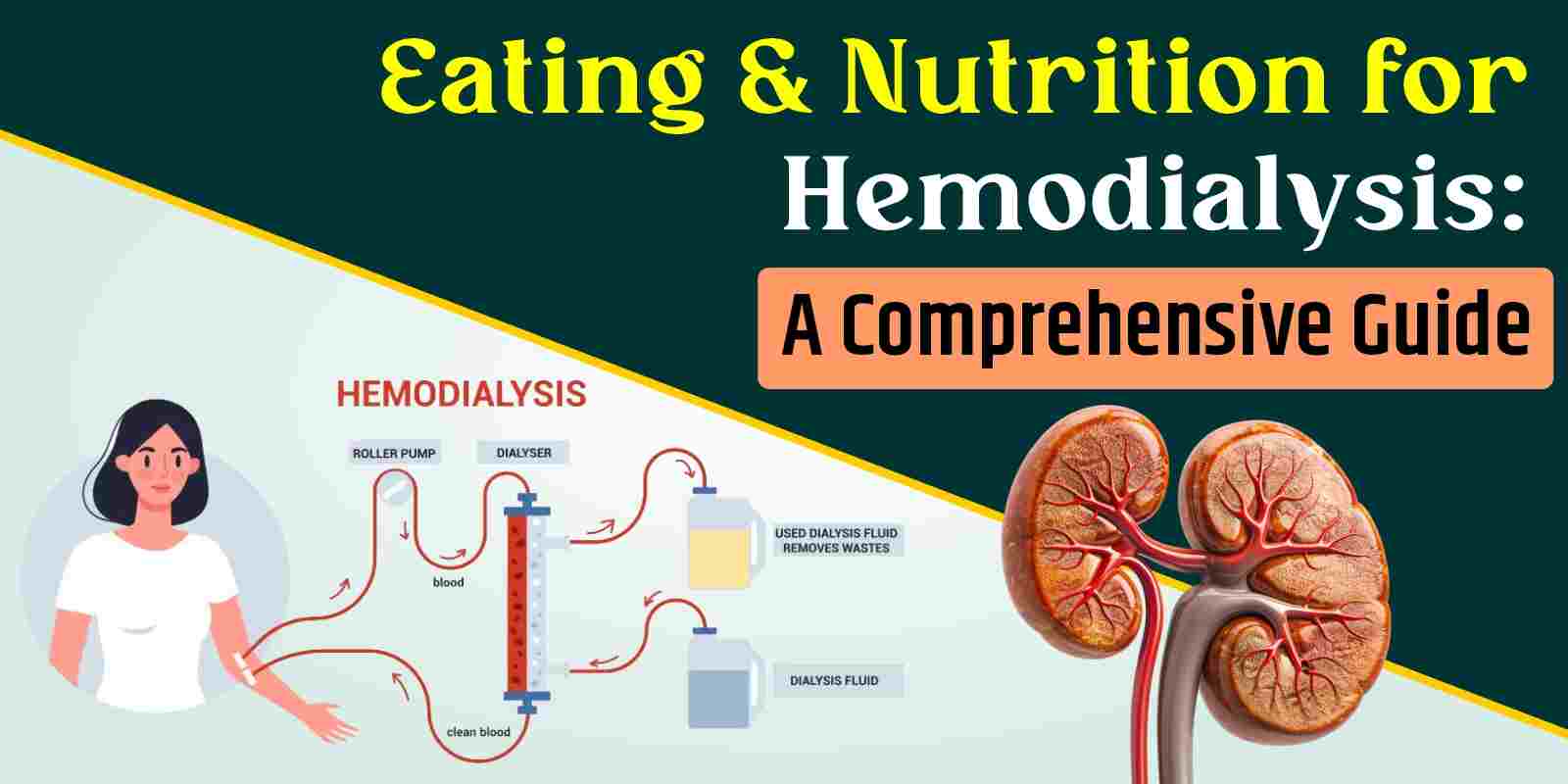If you have kidney failure, hemodialysis is often recommended to remove waste, excess fluids, and toxins from the body. While hemodialysis can certainly improve the quality of life in the patients, the dietary needs of individuals undergoing dialysis have to be taken care of, as proper nutrition helps manage complications associated with hemodialysis effectively. Kidney treatment in Ayurveda places massive emphasis on the right diet for kidney patients. This guide will try to shed more light on the key aspects of eating and nutrition for individuals undergoing hemodialysis.
Need a Dialysis‑Friendly Nutrition Plan?
Call our Ayurvedic dietitians now for a free consultation on customizing meals that support your hemodialysis journey!
The Importance of Diet in Hemodialysis
For those suffering from severe renal failure, a buildup of harmful substances in the blood is averted via hemodialysis. A balanced diet and the right nutrition plan can prevent dialysis-related complications while supporting kidney health. Dietary recommendations for those undergoing dialysis are designed to:
- Support overall health
- Manage waste products
- Maintain fluid balance
- Promote healing and recovery
Key Nutritional Components to Consider
For those on hemodialysis, certain nutrients must be consumed in consideration. These include protein, potassium, phosphorus, sodium, and fluid intake.
-
Protein
Protein helps maintain muscle mass and it is particularly helpful for those undergoing this medical procedure, as hemodialysis can cause the body to lose protein. Ayurvedic treatment for kidney disorders advises the patients to opt for plant based protein.
- Why protein matters: Dialysis removes protein from the blood. A protein-rich diet helps replenish the protein loss.
- Recommended intake: On dialysis, protein needs may shoot up to 1.2 to 1.5 grams of protein per kilogram of body weight per day. However, it is a general assumption; actual intake may differ from person to person.
- Sources of protein: High-quality proteins from animal products like lean meats, fish, poultry, eggs, and dairy are perfect for hemodialysis patients. For vegetarians, high-quality plant proteins such as soy products, lentils, and quinoa are the perfect choice.
-
Potassium
Potassium is engaged in normal muscle function and heart rhythm.
- Why potassium control is important: Since the kidneys cannot remove excess potassium from the blood, those on dialysis must moderately consume potassium.
- Foods to limit: High-potassium foods like bananas, oranges, potatoes, tomatoes, spinach, and avocados should be either avoided or consumed in moderation. If possible, apples, berries, carrots, and cucumbers should be included in the diet.
-
Phosphorus
Phosphorus is another mineral that tends to accumulate when you have dysfunctional kidneys.
- Why phosphorus control is important: Elevated phosphorus levels may result in bone disease, calcium deposits in the blood vessels, and other health complications.
- Foods to limit: Dairy products (cheese, milk, yogurt), nuts, seeds, beans, and whole grains. Many processed foods and cola drinks should also be avoided by hemodialysis patients.
- Sources of lower-phosphorus foods: Rice milk or almond milk, refined grains, etc.
-
Sodium (Salt)
Sodium balances fluid, but too much sodium can result in high blood pressure, fluid retention, and swelling.
- Why sodium control is important: Excess sodium can lead to multiple health issues like fluid retention, high blood pressure, etc.
- Foods to limit: Avoid processed, canned foods, pickled items, salty snacks, and fast food.
-
Fluid Intake
Managing fluid intake is the most relevant aspect of dialysis nutrition. Dialysis patients are at constant risk of fluid retention.
- Why fluid control is important: Though hemodialysis removes excess fluid from the body, it cannot completely remove all the fluids. Managing your fluid intake becomes vital.
- Fluid intake guidelines: Dialysis patients are advised to limit their fluid intake to 32 ounces (about 1 liter) per day. Fluid intake includes water, soups, beverages, and foods with high water content like fruits and vegetables.
- Tips: Drink small sips throughout the day rather than gulping down a high quantity of liquid at once.
Have Questions About Your Dialysis Diet?
Chat with our Ayurvedic experts on WhatsApp to fine‑tune your intake of protein, potassium, phosphorus, sodium, and fluids.
Diabetic Dialysis Patients: Some Considerations
For diabetics, maintaining balanced blood sugar levels is crucial. High blood sugar can result in nerve damage and poor wound healing and can severely impact the efficacy of dialysis as well.
- Carbohydrate management: Diabetics on dialysis should control carbohydrate intake, especially from foods that are known to cause sharp spikes in blood glucose levels. Whole grains, legumes, and vegetables should be preferred over refined sugars and processed carbs.
- Regular blood sugar checks: Frequent monitoring of blood glucose levels is paramount for patients on dialysis.
Creating a Balanced Diet Plan
Work with a certified dietitian for the ideal diet plan and make sure your diet plan adheres to your specific needs, preferences, and health conditions. Some general can be:
- Eat smaller, more frequent meals; avoid 2-3 heavy meals.
- Choose high-quality and kidney-friendly protein sources like fish, eggs, and lean meats.
- Include fresh fruits and vegetables that have low potassium and phosphorus content.
- Drink fluids in moderation and work with a doctor to religiously monitor your fluid intake.
- Use low-sodium alternatives to avoid fluid retention.
Why Choose Karma Ayurveda Hospital?
Karma Ayurveda is the leader in the field of Ayurvedic treatment for health disorders. The hospital, established in 1937, provides the perfect mix of natural treatment and modern medicinal practices so that your disorders are addressed thoroughly. In addition, the hospital places an extra emphasis on diet and lifestyle changes for the overall improvement in the health of the kidney patients.
Ready for a Complete Hemodialysis Diet Plan?
Fill out our quick form now to receive a personalized Ayurvedic protocol—meals, snacks, and fluid guidelines tailored to your needs.
Conclusion
A carefully planned diet helps dialysis patients manage complications like electrolyte imbalances, malnutrition, and fluid retention. By focusing on protein, potassium, phosphorus, sodium, and fluid control, dialysis patients can ensure their nutrient requirements are thoroughly met. However, collaborating with a dietitian and your doctor is indispensable.

